The 1909 RAS China Honorary Members List – Who Were They?
Posted: September 9th, 2014 | 1 Comment »A recent trawl by the RAS Shanghai librarians turned up a list of Honorary Members of the North China Branch for 1909…but who were these people?
The Honorary Protector (a post that sadly no longer exists) was held by His Majesty Leopold II, King of the Belgians (a post now held by His Majesty King Philippe). Not sure Leopold did very much as Honrary Protector as he died in December 1909. Leopold II has gone down in history rather infamously as best known for his rather horrific imperialist exploits in the Congo. Belgium was a treaty port power so he had a foothold in China and, apparently, a taste for Chinoiserie and the Far East. At the Royal Palace of Laeken he included a Japanese Tower and a Chinese Pavilion in the grounds. He did visit China shortly before his accession to the throne in the early 1860s. He was a keen investor in China, believing in railways. According to Adam Hochschild’s excellent book King Leopold’s Ghost, ‘In 1897, Leopold began investing in a railway in China, seeing China as “a feast to be consumed, and he was as ready as ever to invite himself to the table†He said of the Chinese railroad route he wanted to get: “This is the spine of China; if they give it to me I’ll also take some cutlets’â€
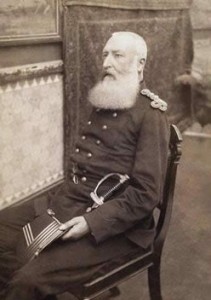 And what of the Honrary Members?
And what of the Honrary Members?
Well, Dr. S.W. (Stephen Wootton) Bushell was not likely to be attending any meetings as he had died in September 1908. Bushell, resident in England at the time anyway, was a specialist in Chinese ceramics, numismtaics and deciphering Tangut script. In January 1868, at the recommendation of Dr William Lockhart, Bushell was offered a position as physician to the British Legation in Peking, with an annual salary of £600 and the promise that he could also engage in private practice if he wished. He set sail for Shanghai on the last day of the next month, and except for a few periods of leave, he remained there for the next 32 years.He had eturned to England in 1900, due to ill-health. In autumn 1872, Bushell and Thomas G. Grosvenor (1842–1886), a secretary at the British Legation, went on a journey beyond the Great Wall to Mongolia, and visited the ruins of Shanghdu, the fabled summer capital of the Yuan. They were the first Europeans to visit Shangdu since the time of Marco Polo. He was appointed a Chinese ceramics collector for the V&A in London while most of his personal collection was left to the British Museum.
Edouard Chavennes was a French Sinologist who specialised in the history of religion in China. He was a leading light in the second wave of formal Sinologists in France. After studying Chinese in Paris, Chavannes obtained a position as an attaché to a scientific mission associated with the French Legation in Peking in January 1889. Chavannes stayed in China until 1893, when he returned to France to take up the position of Professor of Chinese at the Collège de France. He died in 1918 at the young age of 52.
Professor Henri Cordier had been one of the French Sinologists that inspired Chavennes to study Mandarin. A self declared Orientalist, Cordier became the President of Paris’s Geographic Society. In 1869 at age 20, Cordier sailed for Shanghai, where he worked at an English bank. During the next two years, he published several articles in local newspapers. In 1872, he was made librarian of the North China branch of the RAS. In this period, about twenty articles were published in Shanghai Evening Courier, North-China Daily News and the Journal of the North China Branch of the Royal Asiatic Society. In 1876, he was named secretary of a Chinese government programme for Chinese students studying in Europe. Later Cordier returned to France and was appointed a professor at l’École spéciale des Langues orientales. He died in 1925.
Sampatrao Gaekwad is a somewhat different character – the son of Sayajirao Gaekwad III, the Maharaja of Baroda, and therefore making him a prince. His achievements included being one of the men who established the Bank of Baroda, now one of India’s Big 4 banks. He died in 1935
Professor Herbert Allen Giles is no surprise on the list – I don’t think China Rhymers need an exhaustive biography of Giles – British diplomat in China (at Shanghai and Ningpo) and Formosa (at Tamsui – see my post from 2009 on his former residence in Taiwan), Professor of Chinese at Cambridge (only the second ever appointed), writer of numerous studies and, of course, the Chinese-English Dictionary and the Wade-Giles system which has given many authors on China long hard arguments with their editors!! He made it 89 and died in 1935.
Sir Robert Hart – I’m going to hold back on the old “IG” too as everyone who visits China Rhyming regularly knows that old Ulsterman and the scion of the China Maritime Customs.
 Professor Friedrich Hirth is a new one on me though – A German-American Sinologist who served (under Hart) in the Maritime Customs before becoming Professor Chinese at Columbia University in 1902. He died in Munich in 1927.
Professor Friedrich Hirth is a new one on me though – A German-American Sinologist who served (under Hart) in the Maritime Customs before becoming Professor Chinese at Columbia University in 1902. He died in Munich in 1927.
Sadly Mr T.W. Kingsmill has slightly slipped from history too though was living on Yuhang Road (now Dongyuhang Road) in Shanghai at the time and had been an early President of the RAS North China branch. Kingsmill was a classical scholar (ancient Persia and all that) but wrote rather a lot on China and especially for the RAS Northern China branch Journal, an article on ” The Border Lands of Geology and History,” in 1877 for instance, the identity of the Hiung-nu with the Huns of Europe – that sort of thing. A German Sinologist recently commented – “we know little about the emotional life of T.W. Kingsmill (a.k.a., Jin Simi 金斯密, 1837-1910), British pioneer geologist, indefatigable NCBRAS [North China Branch of the Royal Asiatic Society] architect, prolific amateur sinologist, Daodejing translator and long term Shanghai resident…” Sadly Kingsmill died in 1910.
Of Professor Charles R Lauman of Harvard University I know even less I’m afraid. A long-time Harvard man I believe, a member of the American Philological Society in the 1870s and 1880s, but sadly no more!
John Stewart Lockhart of Weihaiwei has, of course, featured on this blog many times and so I Won’t go into too much detail – a British colonial official in Hong Kong and China, Commissioner of Weihai between 1902 and 1927, founded the Hong Kong Football Club and returned to London to be involved with the RAS in England. He died in 1937, aged 79.
J. F. Marques Pereira is an interesting character and a great historian of Macao and the Portuguese presence in Asia. His A questão do Extremo-Oriente e a missão portugueza á China was a classic on the subject.
And finally, the Reverend William Alexander Parsons Martin, aka Ding Weiliang, American Presbytarian missionary resident in Peking and a translator of many works (many legal) from English into Chinese and served as interpreter for the United States minister William B. Reed, in negotiating the treaty of Treaty of Tientsin in 1858. He was also occasional translator to America’s Ambassador Ansom Burlingame. He was reputed to be the first foreigner to make the journey from Beijing to Shanghai on the Grand Canal of China (I once tried that and gave up south of Suzhou!!), and described the trip in the “Journal of the Asiatic Society” in 1866. He died in Peking in 1916.
And that, ladies and gentlemen, is your Honorary Protector and Honorary Members of the Royal Asiatic Society North China Branch for 1909….
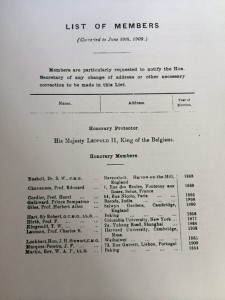
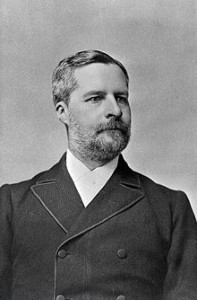

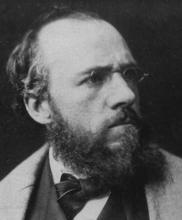
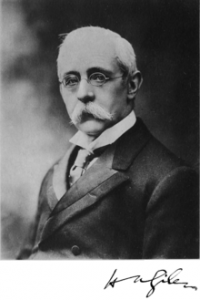
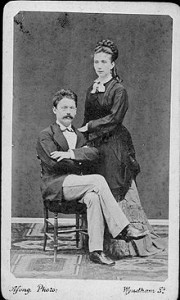
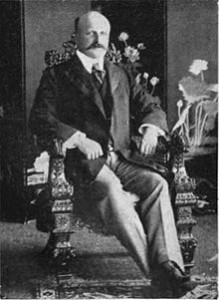
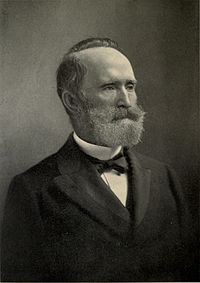
The “unknown” Person is called Charles Rockwell Lanman (1850-1941), a renown scholar of Sanscrit, professor at Harvard since 1880. There is plenty of information on his vita circulating in the web.
Best regards, Carlo